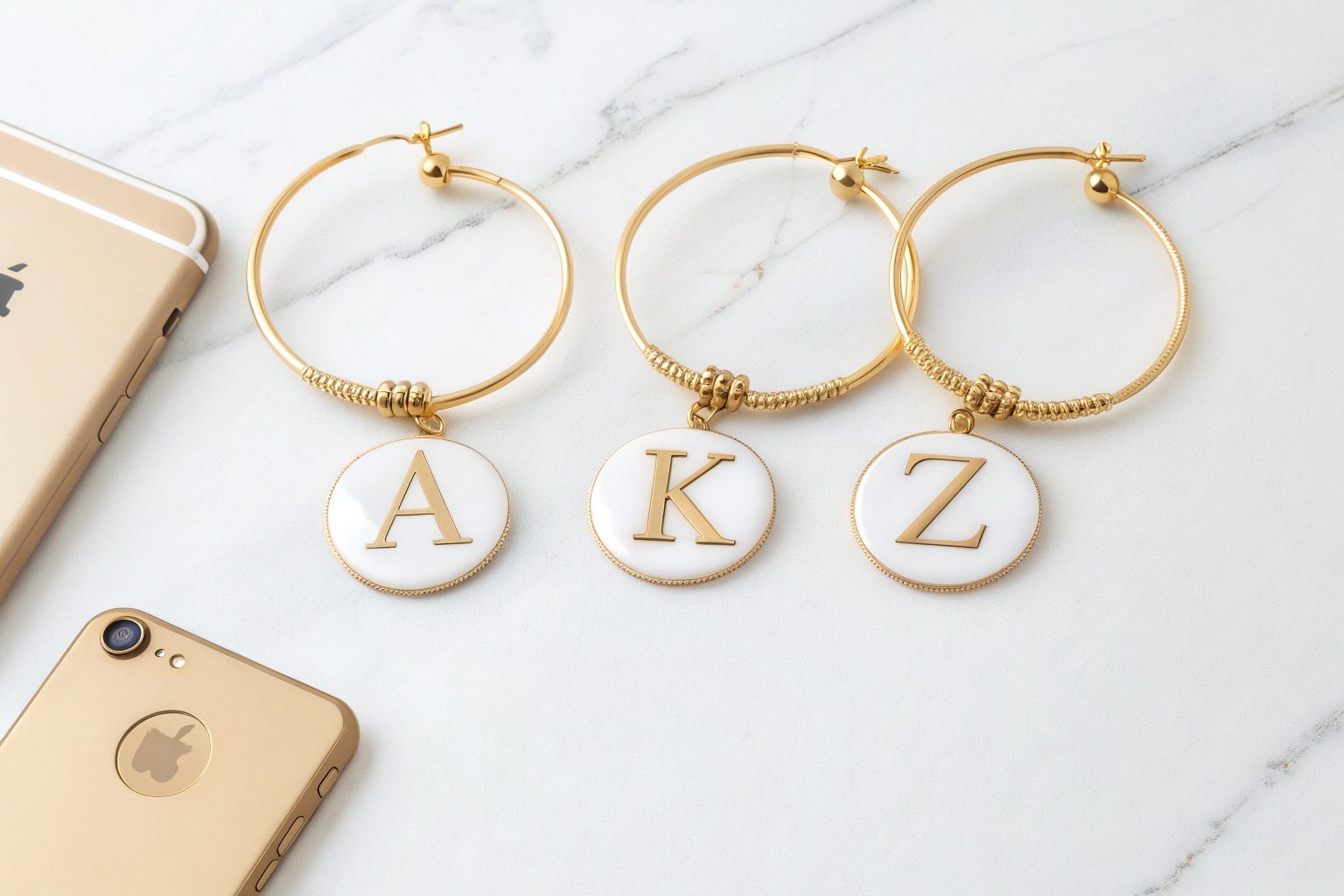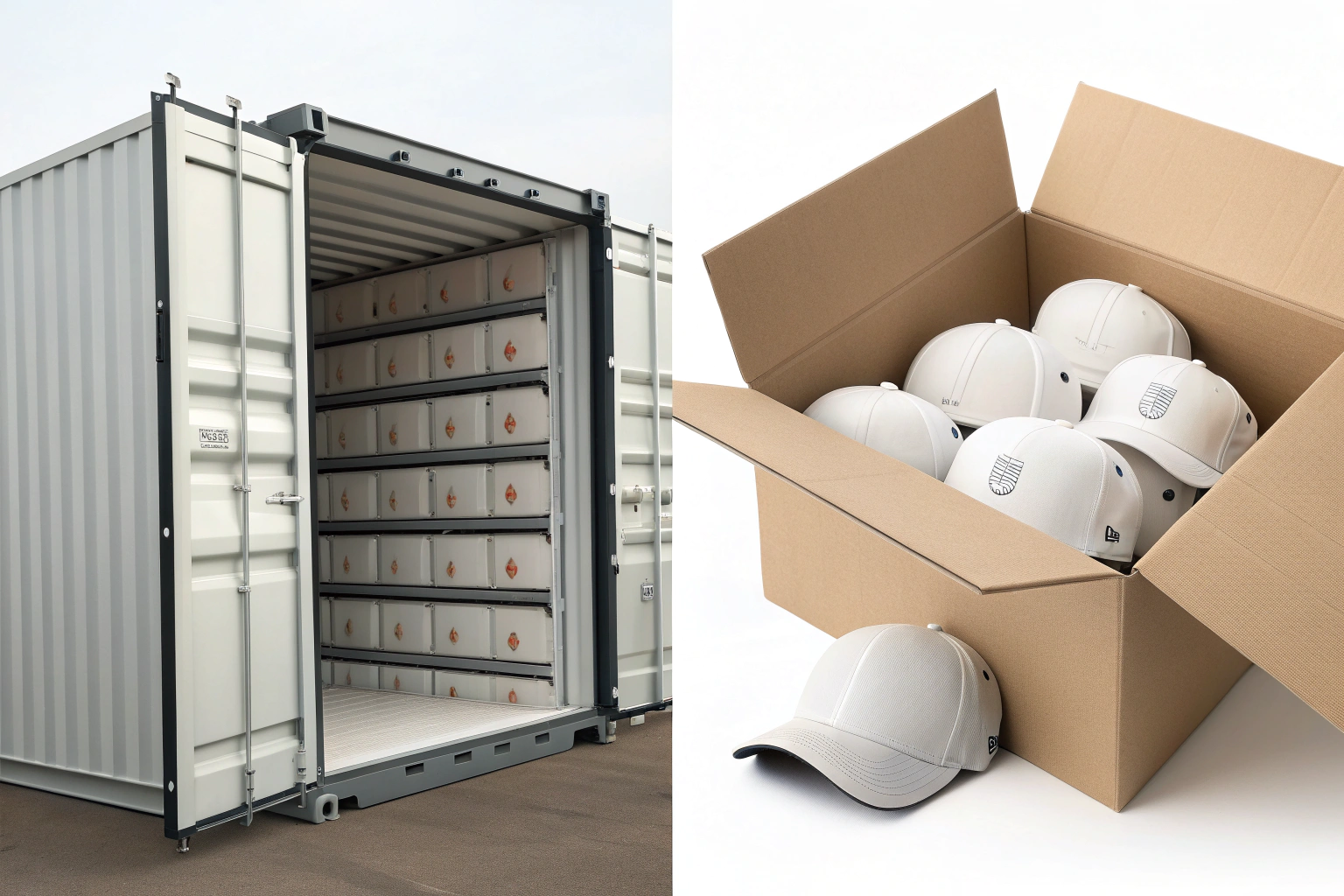If you're importing fashion accessories like hair clips, scarves, or hats from China to countries like the US or in Europe, you might have encountered the term "ATA Carnet." For buyers like Ron, who are focused on efficiency and cost, the customs process can be a major pain point. The question of whether you need a Carnet and how to manage it can seem daunting. But what if this process could be simplified, ensuring your high-quality accessory shipments clear customs smoothly and without unexpected delays or costs? Understanding Carnets is key to a seamless international supply chain.
A Carnet, specifically an ATA Carnet, is a customs document that allows for the temporary, duty-free importation of goods into a member country for up to one year. It acts as a passport for commercial samples, goods for trade shows, or professional equipment. For accessory importers, the primary advantage is the temporary suspension of tariffs and Value-Added Tax (VAT), which is crucial for items like sample collections meant for buyer presentations or marketing events. The core benefit is financial predictability and cash flow efficiency, as funds aren't tied up in customs bonds during the temporary admission period.
Navigating international logistics requires a clear understanding of all documentation. While a Carnet solves specific problems, it's not always required. Let's break down everything you need to know to determine if your accessory shipment needs a Carnet and how to manage the process effectively.
What is an ATA Carnet and When is it Needed for Accessory Imports?
The world of customs documentation is complex, but the ATA Carnet has a specific and valuable purpose. Essentially, it's an international customs document that simplifies the process of temporarily importing goods. For our clients in the accessory industry, this is most relevant when shipping product samples to international buyers or transporting items to trade fairs and exhibitions. The Carnet guarantees to the customs authorities of the importing country that any applicable duties and taxes will be paid if the goods are not re-exported within the allowed time frame.
So, when is a Carnet absolutely necessary? The key distinction is temporary importation versus permanent importation. If the accessories—be it a new line of baseball caps or a selection of hair bands—are intended for sale within the destination country, they require standard import procedures and payment of duties. A Carnet is not applicable. However, if you are a buyer like Ron, who needs to evaluate a physical sample before placing a bulk order, a Carnet is the ideal tool. It allows you to bring samples into your country without immediate financial outlay for tariffs, which is a significant advantage given the current focus on tariff costs.

How does the Carnet process work from a Chinese exporter's perspective?
From our perspective as a manufacturer in China, the process begins when a client like Ron confirms the need to ship samples under a Carnet. The client is typically responsible for obtaining the Carnet from their local chamber of commerce in the importing country. Once they provide us with the document details, we include the Carnet number on all shipping documents. Our role is to ensure the shipment is perfectly packed and documented, with a precise inventory list that exactly matches the description in the Carnet. This attention to detail is part of our quality control commitment, preventing discrepancies that could cause customs delays. We then work with our vetted logistics partners to handle the physical transit, ensuring the Carnet is presented correctly at both export and import points.
What are the common pitfalls when using a Carnet for accessory shipments?
The most common pitfall is improper use. Using a Carnet for goods that will be sold or permanently left in the country is a serious violation. Other issues include discrepancies between the shipped items and the Carnet's itemized list. For example, if the Carnet lists "50 knit hats" but the shipment contains 52, customs officials can deny entry. Another critical pitfall is missing the re-exportation deadline. The goods must leave the country within the Carnet's validity period, and the document must be stamped by customs upon exit to prove compliance. Failure to do so results in hefty fines and a claim against the Carnet's security. This is where partnering with an experienced exporter who understands these nuances becomes invaluable for ensuring timeliness and security.
What Are the Alternatives to a Carnet for Shipping Accessories?
While an ATA Carnet is a powerful tool, it's not the only path for temporary imports. For many of our clients, especially those shipping smaller volumes of samples or those operating on tight deadlines, exploring alternatives can be more efficient and cost-effective. The decision often comes down to the value of the goods, the frequency of shipments, and the specific customs regulations of the destination country. Understanding these options empowers you, the buyer, to make the most strategic choice for your business, balancing speed, cost, and compliance.
The most straightforward alternative is simply to ship the samples as permanent imports and pay the applicable duties. For low-value samples, this can sometimes be simpler and cheaper than going through the Carnet application process. Many countries have a de minimis value, below which no duties or taxes are collected. However, this threshold varies widely, and for higher-value sample collections, the costs become significant. Other options include using a temporary importation bond or leveraging inward processing relief schemes, but these often involve more complex paperwork and financial guarantees.

When is it better to ship samples as permanent imports?
Shipping samples as permanent imports is often better when the sample's value is low enough to fall below the duty-free threshold of the destination country. For instance, shipping a few pieces of hair clips or a single scarf to a potential online store owner might not justify the cost and effort of a Carnet. It's also a preferable method when there is no intention or requirement to return the samples. This approach simplifies the logistics process, reduces upfront administrative work, and can lead to faster sailing schedules as there is no special documentation to process. We often advise our clients on the most cost-effective method based on the specific circumstances of their shipment.
Can you use a freight forwarder to simplify temporary imports without a Carnet?
Yes, absolutely. A knowledgeable freight forwarder is an invaluable partner in navigating temporary imports. Many forwarders offer consolidated services where they use their own bulk customs bonds to temporarily clear goods for their clients. This can be an excellent alternative to obtaining an individual Carnet, especially for smaller businesses or for one-off events. The forwarder acts as the importer of record, managing the customs clearance and ensuring the goods are re-exported on time. This service provides a layer of security and expertise, mitigating the risks that buyers like Ron are often concerned about. It's a service we can easily integrate through our established network of reliable partners.
How Can Your Supplier Help Manage Carnet and Logistics?
A common misconception is that the entire burden of managing a Carnet falls on the importer. While the importer typically secures the document, a proactive and service-oriented supplier like Ace Accessory plays a critical role in ensuring the process is seamless. Our experience as a professional manufacturer and exporter means we have systems in place to support you every step of the way. We don't just make products; we provide solutions that address your core pain points, including inefficient pricing structures and logistical complexities.
Our assistance begins at the quotation stage. When you inquire about samples, we ask the right questions to determine if a Carnet is needed. We then provide a detailed breakdown of costs and procedures, so there are no surprises. Our project managers, each with years of experience, act as your single point of contact, coordinating between your team and our logistics department. They ensure that the product descriptions on the commercial invoice and packing list are perfectly aligned with the descriptions on your Carnet, a simple but crucial step for avoiding customs delays.

What information should you provide to your supplier for a Carnet shipment?
To facilitate a smooth Carnet shipment, you should provide your supplier with a copy of the Carnet document well in advance of the shipping date. The most critical information is the Carnet number and the detailed, itemized list of goods as recorded in the Carnet. It is also helpful to share any specific instructions from the Carnet issuer. Furthermore, clear communication about the final destination address and contact person is vital. This allows us to prepare all package transportation documentation accurately, ensuring that the customs clearance process on your end is as efficient as possible.
How does supplier reliability impact Carnet-related logistics?
Supplier reliability is paramount. An unreliable supplier can jeopardize the entire Carnet process. Delays in production can mean the samples are not ready in time for the trade show, making the Carnet useless. Poor quality control can lead to you rejecting the samples, creating a complicated scenario of re-exporting goods you never intended to keep. At Ace Accessory, our modern factory and strict QC processes ensure on-time delivery of high-quality samples. This reliability protects your investment in the Carnet and ensures your business activities, like buyer meetings or marketing events, proceed as planned. Our fast development cycle means we can often accommodate tight timelines that other suppliers cannot.
What Are the Key Cost Considerations for Carnet Shipments?
Understanding the cost structure of using a Carnet is essential for importers like Ron who are highly price-conscious. The expenses extend beyond the manufacturing cost of the accessories themselves. There are direct and indirect costs associated with the Carnet that must be factored into your sourcing budget. A transparent supplier will help you understand these costs upfront, allowing for an accurate assessment of whether the Carnet route is the most economical choice for your specific situation.
The direct costs include the fee to issue the Carnet from your local chamber of commerce, which is often based on the value of the goods being shipped. Additionally, you will likely need to provide security, often in the form of a bond or cash deposit, which is typically 40% of the total duties and taxes applicable to the goods. This security is refunded once the Carnet is properly discharged. There are also potential costs from the freight forwarder for handling Carnet documentation. Indirect costs include the administrative time spent managing the process and the risk of fines for non-compliance.
| Cost Component | Description | Typical Range | Who Bears the Cost? |
|---|---|---|---|
| Issuance Fee | Fee charged by the Chamber of Commerce | Varies by country/goods value | Importer (Buyer) |
| Security Deposit | Refundable bond/cash (e.g., 40% of potential duties) | Based on goods value and destination tariffs | Importer (Buyer) |
| Forwarder Fees | Handling fees for Carnet documentation | Varies by forwarder | Importer (Buyer) |
| Supplier Logistics | Standard export logistics and documentation | Included in shipping quote | Usually Importer (Buyer) |
How are Carnet costs calculated?
Carnet costs are primarily calculated as a percentage of the total value of the goods being shipped. The issuing authority (e.g., the US Council for International Business in the United States) charges an issuance fee based on this value. The required security deposit is also a percentage—often 40%—of the total duties and taxes that would be owed if the goods were permanently imported. For example, if you are temporarily importing samples of belts and gloves with a total value of $10,000 and the cumulative duty rate is 10%, the potential duty is $1,000. The security demanded might be $400 (40% of $1,000). This makes accurate valuation of the samples critical.
Can you avoid Carnet costs altogether?
In some scenarios, yes, you can avoid Carnet costs altogether. The most effective way is to utilize the de minimis value rule by keeping the value of a single shipment below the threshold of the destination country. For the USA, this threshold is $800. This means low-value sample shipments can be sent via express carriers like DHL or FedEx without a Carnet and without incurring duties. Another method is to use a supplier with a strong international presence who can manage sample logistics through their local offices, though this is rare. For high-value samples, however, a Carnet is often the most cost-effective solution despite the upfront costs, as it prevents tying up large sums in duty payments.
Conclusion
Navigating accessory shipments that require a Carnet doesn't have to be a source of stress. By understanding what an ATA Carnet is, when it's needed, and the available alternatives, you can make informed decisions that protect your bottom line. The process hinges on clear communication, precise documentation, and reliable partners. From ensuring your sample descriptions match perfectly to choosing the most efficient logistics path, each step is manageable with the right expertise.
The key takeaway is that a Carnet is a specialized tool for a specific job—temporary importation. For permanent imports, standard procedures apply. Weighing the costs and benefits in the context of your business needs is crucial. Ultimately, a knowledgeable supplier should act as an extension of your team, providing guidance and seamless execution to turn logistical challenges into competitive advantages.
If you are looking for a reliable partner to help manage your accessory orders and navigate complex logistics like Carnet shipments, contact us at Ace Accessory. Our Business Director, Elaine, is ready to discuss how we can provide you with high-quality products and professional, dependable service. Reach out to her at elaine@aceaccessory.com to start the conversation today.









